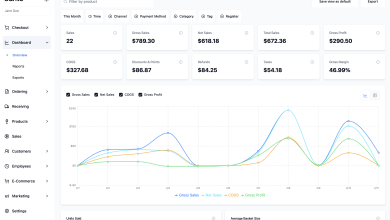
AI is transforming how brands connect, create, and compete. But what does this mean for those responsible for their company’s marketing and advertising strategies, namely, the CMO?
To put this into context, the best CMOs have always thrived in environments defined by disruption and rapid reinvention. Now, that pace has accelerated beyond precedent, with AI reshaping the very foundations of creativity, customer connection and competitive advantage.
A recent report from Forrester suggests that the role of the CMO is in decline, leading to the automatic conclusion that AI poses a threat to senior marketing roles. But rather than being a replacement for marketers, AI should be seen as an enabler and augmenter – as long as you know how to use it. It’s an extraordinarily powerful tool, but with great power comes great responsibility. That responsibility sits squarely with the CMO, who must guide how AI augments creativity, not replaces it.
Marketing will always be a human-led activity
While there are plenty of AI use cases for marketing, there are some skills based on human qualities that machines will never be able to replicate. AI can optimize, but only humans can empathize. Fundamentally, marketing is about building and nurturing relationships between a brand and its prospective and current customers. As long as those making the decision to buy the brand’s product or service are human, they require a human touch. Technology can’t replicate the instinct, nuance, or emotional intelligence that drives great marketing and builds real loyalty.
That said, AI has the potential to be the CMO’s ultimate superpower when used with intent. Its strength lies in translating data into foresight. Large language models can turn fragmented data into actionable intelligence, instantly and at scale. With this predictive intelligence, marketers can anticipate needs, personalize experiences and reach customers in the moments that matter. It allows marketers to move beyond simply targeting to truly connecting with their audience.
The bond of trust between brands and their customers
Trust has always been the invisible currency of marketing. Today, how a company handles data and offers customers transparency about how data is used is a direct reflection of how it values its customers. Studies have shown that consumers are willing to share data with companies as long as it’s on their own terms, while other reports show that they are also happy to share data to enable personalized experiences.
But they’ll also quickly turn their backs on organizations that abuse this trust. Approximately 60% of consumers believe that personal data is routinely misused by companies. This means CMOs can’t afford opacity over how they use data. How they communicate their data handling processes has never been more important.
That’s because data holds more value now than it ever did, as the fuel for effective AI platforms. For marketing teams wanting to leverage AI tools to transform their marketing processes and supercharge their capabilities, data access is key. No one company has all the data it needs, so they’ll need to collaborate with media owners, retailers, data enrichment providers, and even other brands to build AI engines that enable them to access predictive intelligence.
Why CMOs must be at the forefront of the AI-enabled marketing teams
Experienced leaders, whether they hold the title of CMO or not, are needed to lead this transition into the new, AI-enabled age of marketing. That’s because the adoption of new marketing technology is most often driven by the CMO; ahead of CIOs, CTOs or finance and procurement teams, according to research from IMG.
CMOs must not only choose the right tools but also build the right culture, train their teams, define clear principles, and communicate transparently with customers. Understanding where data comes from and how it’s used should be second nature to everyone, from the CMO to the analyst and end-user. Data used to train the models must be sourced ethically and treated in accordance with customers’ wishes.
And while the AI technology itself is crucial, so too are the technologies used to protect customer data. For any collaboration to be truly privacy-first, there are some key requirements. Firstly, data should never be centralized into a single environment where data from other parties is also stored. Secondly, no datasets should be combined or commingled. Finally, deterministic IDs can’t be relied on, as these are quickly becoming obsolete.
All collaborations must be built on effective Privacy Enhancing Technologies (PETs), which use layers of techniques such as secure multi-party collaboration, differential privacy, and federated learning to build robust AI models while ensuring that data is never shared or leaked. That means every participant retains full control of their data, and every customer’s privacy is protected.
In the age of AI, CMOs must lead the way
AI may power the future, but CMOs will define it. Building effective AI models will require collaboration between brands, media owners, retailers, and third-party data enrichment providers. At the same time, companies will need to ensure data is protected to maintain the bond of trust with their customers. This balancing act means that strong marketing leaders who understand the responsibilities that go alongside their AI strategies are more important than ever before.




